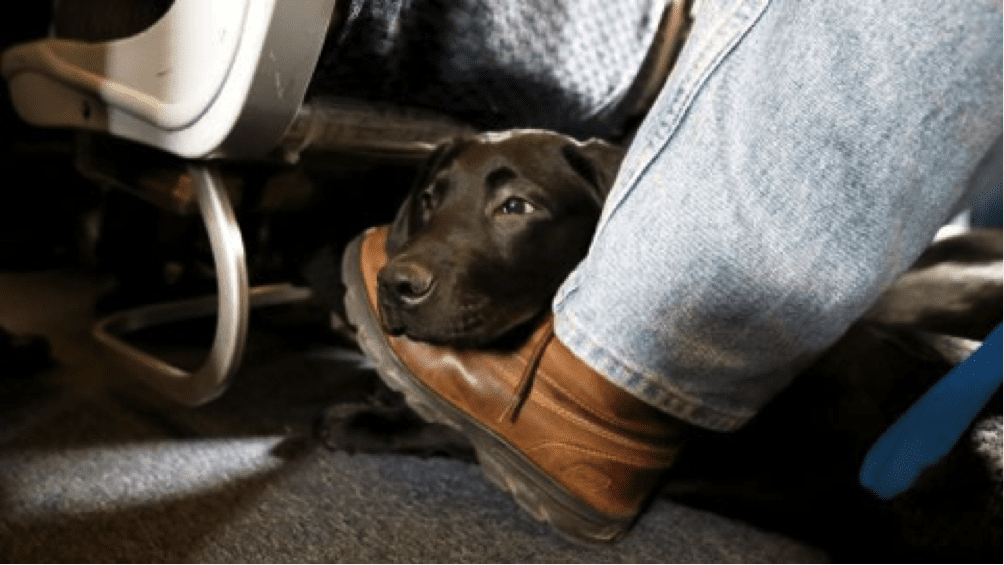Service animals are subject to federal protections under the Americans with Disabilities Act. Defined as animals that are trained individually to work and perform tasks for an owner with a disability, service animals can perform tasks that drastically improve their quality of life.
Service animals typically are highly trained to help owners accomplish tasks or to accomplish tasks themselves. They can also serve as guide dogs (seeing-eye dogs), hearing dogs, or offer psychological support. Other types of service animals can sense when their owner is having a seizure, and fetch medication or get help.
New York Law and the Americans With Disabilities Act
The laws in New York differ in some ways from the Americans with Disabilities Act (ADA) which creates a complete framework for all states to follow. States are required to, at minimum, abide by the ADA, although they’re free to create additional protections for disabled people.
In New York, anyone with a disability can rely on support from a service animal to help them live, work, go to school, go to college, travel or accomplish any other tasks. Federal law defines a service animal to be a dog or a miniature horse. New York, unlike other states, doesn’t expand this definition, meaning that to be federally protected as a service animal, you must own a dog or miniature horse. Emotional support animals (ESAs) are subject to different regulations, and people often choose to use bunnies, cats, or other smaller animals as one.
Service dogs are permitted in all public places, including private businesses. This includes shops and stores, hotel-style accommodations, government buildings and more: nearly any public places that the general public is allowed access to are required to permit service dogs.
The New York law follows the same protocols and regulations as the ADA to allow a person with a disability access to all public spaces with their service animal. New York law is more specific than federal law, specifically including restaurants, museums, shops, and public transport, as well as anywhere else the general public is allowed. All service dogs are required to be under the control of their handler either by a harness, tether, or voice commands (in certain situations where a harness would interfere with its work duties). Untrained dogs are not considered service dogs.
In comparison to the ADA, the New York law covers the definition of public accommodations very broadly and includes all public housing, private housing (if the renter is disabled), all public and private transportation, all schools and educational institutions, all buildings where the public is invited to enter (including government buildings), all theatres including music venues and cinemas, all places that sell food and beverages, all other places of public accommodation or entertainment, and shops or businesses where the public is permitted. It encompasses virtually everything but private residences.
New York State and the Rights of Disabled People
New York has a strong history of supporting those who struggle with disabilities, with many protections in place for those with physical and mental challenges. First, when discussing disability in any state, it’s important to note that all states are subject to the ADA, federally protecting the rights of disabled individuals. This includes the right to have a service animal.
That being said, New York has a legislative environment that’s even a step above what the federal government guarantees, reaffirming individual rights to a service dog on a state level and a local level. New York state also requires any public facility to permit the entrance of service dogs, guide dogs, or hearing dogs, including dogs that are being trained, and including people with psychological disabilities. All in all, New York is one of the most accommodating states for service animals and disabled service animal owners.
Service Dogs in Public Places
There are some provisions under New York law that restrict service dog access in certain scenarios. If a service animal causes a threat to the health or safety of others, then accommodation can deny access. This includes, but is not limited to, growling, barking, or aggressive physical posture. Thankfully this is very unlikely because service dogs are trained extensively to perform their tasks and support their owner even in high-stress situations.
Still keep in mind that a public accommodation is not required to allow your service animal to remain if it poses a direct threat to the health or safety of others. If, for example, your service dog is growling and lunging at other patrons, and you are unable to stop the behavior, the business or space is permitted to request that you leave the premises.
For transportation, service animals are permitted in all private and public transportation including vehicles and facilities. Service dogs are meant to help disabled people have more independence, which always includes accessing and using public transport. This includes ferries, subways, trains, busses, taxis, and other ground transportation. Dogs are specifically trained to work alongside their owner in unfamiliar environments like transport.
Airlines also are required to permit the use of service animals (dogs and miniature horses) and under the Air Carrier Access Act (ACAA), airlines cannot discriminate against people with disabilities.
As far as private transportation in New York City, the taxi and limousine commission has rules to ensure there is no discrimination against someone wanting to take a taxi ride who has a service animal.
Service Dog Fraud
A law passed in New York state in December 2017 covers service dog fraud. The misrepresentation of a service dog is a common crime where an owner of a dog affixes an improper tag, improperly registers the dog, or uses a service dog collar to enable access to places a pet would not be normally permitted.
For example, calling an untrained pet dog a service dog to let them go into shops and restaurants is an example of service dog fraud. Violating this law could result in up to $100 in fines and 15 days in jail. Make sure your paperwork is in order and that you’re not misrepresenting your dog to ensure compliance.
Wrapping Up
Service dogs are used to tremendous effect in New York, and are protected by legislation that gives them more rights and privileges than those provided by the ADA. This works tremendously well, as New York consistently ranks among the top states to live as a disabled person. A service dog improves their quality of life and allows disabled individuals to enjoy the same freedom and independence as able-bodied New Yorkers.

